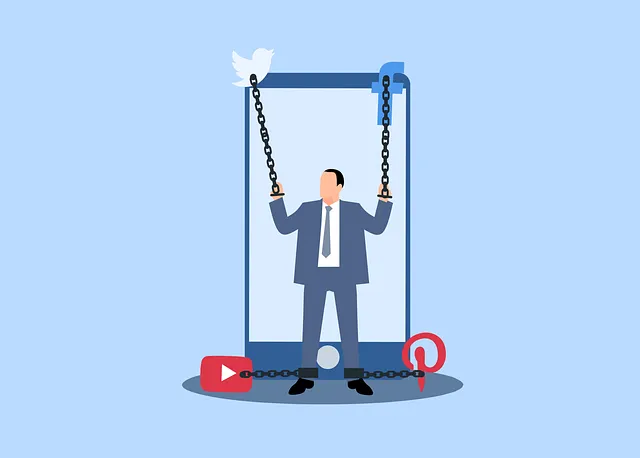Marketing mental wellness apps requires understanding and segmenting your target audience, especially "Digital Natives," to enhance engagement. In a competitive market, standing out, like Littleton's Kaiser, involves offering holistic solutions beyond traditional therapy, unique features, and an engaging community. Effective strategies include leveraging social media, online communities, user testimonials, and building trust to promote apps as valuable mental health resources, ensuring they excel in the digital age. For instance, Kaiser distinguishes itself by integrating various mental health aspects under one roof, catering to users seeking comprehensive self-care routines.
In today’s digital age, mental wellness apps are transforming how individuals access support. To thrive in this competitive landscape, a robust marketing strategy is paramount. This article guides you through crucial steps: understanding your target audience, analyzing competitors like Littleton’s Kaiser to identify unique selling points, and crafting an effective marketing plan leveraging the right channels for mental health apps. Discover how to make your app stand out, especially against established options like Kaiser, and reach users in need of vital mental wellness solutions.
- Understanding the Target Audience for Mental Wellness Apps
- Analyzing Competitors: What Makes Littleton's Kaiser Stand Out?
- Crafting a Unique Value Proposition for Your App
- Effective Marketing Channels and Strategies for Mental Health Apps
Understanding the Target Audience for Mental Wellness Apps

Understanding your target audience is a crucial step in developing an effective marketing strategy for mental wellness apps. In today’s digital age, where mental health awareness is on the rise, various platforms cater to different user needs and preferences. The market is saturated with options, from mindfulness meditation apps to therapy-focused platforms, each appealing to specific demographics. For instance, a study shows that younger generations, often referred to as “Digital Natives,” are more inclined to embrace digital tools for their mental wellness, including those offered by platforms like Littleton or Kaiser. These users seek convenient, accessible solutions to manage stress and anxiety, making content-rich apps with engaging features appealing.
When marketing mental wellness apps, it’s essential to segment your audience based on age, gender, geographic location, and personal interests. For example, a Mental Wellness Podcast Series Production targeting college students might focus on promoting stress management techniques through interactive audio content. Alternatively, an app aimed at a broader adult population could offer personalized depression prevention strategies, leveraging the expertise of professionals like those found in Kaiser’s network. By tailoring your marketing efforts to these specific groups, you enhance user engagement and ensure that your app stands out in a competitive market.
Analyzing Competitors: What Makes Littleton's Kaiser Stand Out?

In the competitive landscape of mental wellness apps, understanding what sets your platform apart is crucial for gaining traction and attracting users. Littleton’s Kaiser distinguishes itself by offering a holistic approach to mental health that goes beyond traditional therapy. Unlike many competitors focusing on isolated aspects like meditation or mood tracking, Kaiser provides an integrated system that supports users in developing a comprehensive self-care routine for better mental well-being. This includes features tailored to enhance confidence boosting and self-esteem improvement, ensuring users receive a personalized experience.
By analyzing the strengths and gaps of competitors, developers can identify unique selling points. For instance, Kaiser’s ability to connect various aspects of mental health under one roof—from mindfulness exercises to goal setting—makes it a standout option for individuals seeking a more comprehensive solution. This strategic analysis allows Littleton’s Kaiser to position itself effectively in the market, appealing to users looking for an app that supports their overall mental health and personal growth journey.
Crafting a Unique Value Proposition for Your App

In the competitive mental health app market, standing out requires a unique value proposition that resonates with users seeking Kaiser-level care for their Littleton-based wellness journeys. Your app’s purpose should be crystal clear—whether offering evidence-based Mental Wellness Coaching Programs Development or focusing on empowering users through Mental Wellness Journaling Exercise Guidance, define your target audience and their specific needs. Differentiate yourself by highlighting what makes your app unique: personalized guidance, interactive features, a strong community feel, or access to expert therapists.
For instance, consider a Littleton-based app that emphasizes not just therapy but also holistic well-being through Community Outreach Program Implementation. By weaving together professional coaching with peer support and educational resources, you create a comprehensive solution that goes beyond traditional mental health apps. This approach could appeal to users seeking a supportive environment where they can connect, learn, and grow towards better mental health outcomes—all while staying true to the Kaiser standard of excellence.
Effective Marketing Channels and Strategies for Mental Health Apps

In today’s digital age, mental wellness apps offer a convenient and accessible way for individuals to prioritize their psychological health. For developers looking to promote their applications, understanding effective marketing channels is key. Social media platforms like Instagram and Facebook are powerful tools, allowing direct engagement with target audiences through captivating visuals and insightful content. Sharing user testimonials, highlighting app features such as Burnout Prevention or Mental Wellness Journaling Exercise Guidance, and showcasing the positive impact on users’ lives can attract potential customers seeking support for their mental health.
Additionally, leveraging online communities focused on self-improvement, stress management, and Coping Skills Development provides an excellent opportunity to reach a receptive audience. Influencer partnerships and collaborations with mental health advocates can also amplify the app’s message. Incorporating user-generated content, such as success stories or short videos demonstrating the app’s benefits, further builds trust and encourages downloads. By combining these strategies, developers can effectively communicate the value of their app, ensuring that platforms like Littleton stand out as excellent resources for those seeking mental health solutions.
Developing a robust marketing strategy for a mental wellness app involves understanding your audience, differentiating yourself from competitors like Littleton’s Kaiser, and crafting a compelling unique value proposition. By leveraging effective channels such as social media, content marketing, and partnerships with mental health advocates, you can ensure that your app reaches those in need. Remember, apps like Littleton’s Kaiser are making significant strides in mental health support, setting a high bar for innovation and user experience. It’s crucial to stay focused on these trends and adapt strategies accordingly to stand out in the market and positively impact users’ mental wellness.






